Bridging soil processes and plant-microbiome interactions as a new framework for sustainable food systems
By catherine hodgson on May 8, 2019
Research Seminar: Cluster Hire in LFS Applied Biology, Sustainable Agriculture and the Environment, and CSFS at UBC Farm
Bridging soil processes and plant-microbiome interactions as a new framework for sustainable food systems: the example of silicon biogeochemistry
Dr. Jean-Thomas Cornelis
Associate Professor
Gembloux Agro-Bio Tech
Université de Liège
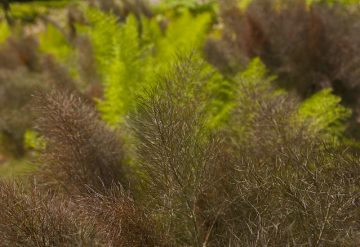
Sustainable agriculture practices rely on the understanding of soil processes and associated soil-plant interactions in landscapes impacted by natural and anthropogenic changes. The silicon (Si) cycle interplays with CO2-driven climate change and can play a pivotal role in the food production resilience to environmental changes. While the Si cycle was long seen as being geologically driven, recent research advances revealed a strong biological imprint. Soil-plant interactions govern the terrestrial Si cycle through plant-induced silicate weathering combined to Si biocycling and the return of highly soluble plant-derived Si to the topsoil. By converting inorganic Si into plant-derived Si through soil weathering and Si uptake, plants affect Si mobility in terrestrial ecosystems. Here, we will discuss soil processes governing the interactions between the mineral and biological parts of the Si cycle in the context of global challenges we are facing: to promote climate-smart and environmentally friendly agro-ecosystems that meet food demand.
When and Where?
- June 20, 2019 from 11:00 a.m. to 12:30 p.m.
- MacLeod Building, Room 254
About the Presenter
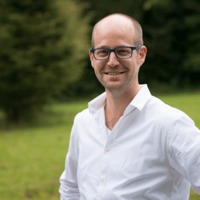
Dr. Jean-Thomas Cornelis, Université de Liège
Dr. Jean-Thomas Cornelis is an Assistant Professor of Soil Science at ULiege (Belgium). He received his PhD in soil science in 2010 (UCLouvain, Belgium) and was FNRS postdoctoral Fellow at UBC in 2011. His research investigates soil processes controlling biogeochemical cycles of nutrients and how soil-plant feedback interactions respond to environmental changes. His process-based approach focuses on the soil system, which by definition integrates processes at different scales and with different disciplines. Jean-Thomas aims to strengthen the leading position of soil conservation to meet the challenge of a sustainable agriculture. He takes as an advantage the complexity and diversity of soil processes to teach students the notion of critical thinking and complex thought. Daddy of two little boys, outdoor enthusiast, big fan of surrealism, he loves to brainstorm new ideas and has always been passionate by philosophy of science and ethical consideration of emerging technologies.
This seminar is part of the LFS Applied Biology Faculty Cluster Hire in Sustainable Agriculture and the Environment. Ten short-listed candidates will be giving seminars in May and June as part of their intensive interview process. Click here see a full list of events.
Read More | No Comments
By catherine hodgson on May 7, 2019
Research Seminar: Cluster Hire in LFS Applied Biology, Sustainable Agriculture and the Environment, and CSFS at UBC Farm
A retrospective of a plant pathologist: from the pathogen study to the host-pathogen interaction to breeding for resistance
Dr. Gurcharn Singh Brar
Research Officer
Crop Development Centre/Department of Plant Science
University of Saskatchewan
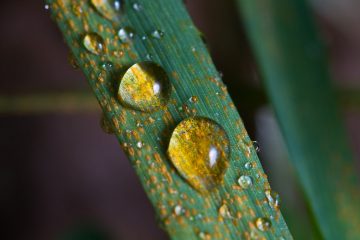
The research presentation will highlight three research studies from Dr. Brar’s research program on pathogens of wheat. Specifically, he will address two of the five most important wheat diseases (stripe rust and Fusarium head blight) in Canada and worldwide. Globally, these two pathogens are responsible for over US$5 billion monetary loss. Stripe rust is an emerging threat to wheat production in Canada for the last two decades and Fusarium head blight is by far the most challenging disease to manage and has been present in Canada for many decades. The presentation will give an overview of novel research findings on wheat stripe rust pathogen populations from Canada, use of cutting-edge imaging technologies to study wheat-Fusarium graminearum interactions, and resistance breeding efforts to combat the disease.
When and Where?
- June 17, 2019 from 11:00 a.m. to 12:30 p.m.
- Macleod Building, Room 254
About the Presenter
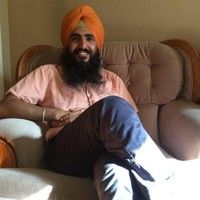
Dr. Gurcharn Brar, University of Saskatchewan
Dr. Gurcharn Brar is a Research Officer at the Crop Development Centre in the Department of Plant Science of the University of Saskatchewan. He obtained his PhD from the same department in March 2019. Originally from Punjab, India, Gurcharn came to Canada to pursue an MSc after obtaining a Bachelor of Science in Agriculture (Honors in Crop Protection) degree from the renowned Punjab Agricultural University, India. Gurcharn’s graduate training focused on the study of plant pathogens, genetics/genomics of pathogen populations, genetics of host-pathogen interactions, resistance breeding, and plant imaging obtained through the University of Saskatchewan, Agriculture and Agri-Food Canada, National Research Council of Canada, the Canadian Light Source, and the International Maize and Wheat Improvement Centre. Currently, Gurcharn is working in the areas of gene cloning and functional pathogenomics with collaborators from across Canada, the USA, the UK, and Australia. Gurcharn aspires to become an independent researcher in a public institution and to continue to explore the interactions of crops with their pathogens/pests, and to help crop breeders to improve crops for the future.
This seminar is part of the LFS Applied Biology Faculty Cluster Hire in Sustainable Agriculture and the Environment. Nine short-listed candidates will be giving seminars in May and June as part of their intensive interview process. Click here see a full list of events.
Read More | No Comments
By morgan hamilton on May 3, 2019
Bees & Wax
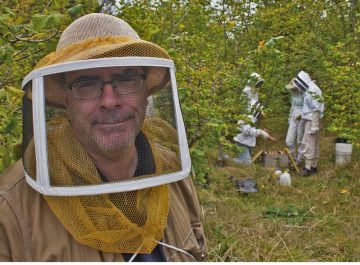
About this Workshop
Honey comb appears to be nearly perfect in it’s geometric composition, each hexagonal cell identical to its neighbour. Or is it? How bees make wax and how they use it is fascinating and surprising. Let’s explore wax and it’s wonders together, what it is made of, how the bees make it and how we use it. As a part of our exploration of wax we will make naturally flavoured lip balm that you may take home.
About the Instructor
Brian became immersed in the rich and amazing world of bees while he and his four sons spent many a glorious day observing the curious activities of bees, noticing the bees’ consistent patterns, collective activities, and the surprising comparisons to our own human patterns and behaviours. He’s never looked back and today is a Certified Beemaster and beekeeper, heavily involved in food security issues in Richmond and the Lower Mainland.
Brian guest lectures for Gaia College’s Growing Food in the City certificate program, for adult education at Van Dusen Gardens in Vancouver, for Kwantlen’s Richmond Farm School and teaches young people in the city about honey bees as well as native types. He is President of the Richmond Beekeepers Association, a BC Association Master Gardener, Sustainable Gardening and Bee Master to West Coast Seeds, and offers classes in grafting fruit trees, food preserving, and other farm skills.
Date and Time
DATE Wednesday, August 7th | 7:00 – 9:00 pm (2 hours)
Location
UBC Farm
3461 Ross Drive, Vancouver BC
Cost
$29 Standard ($25 Student) + GST
Read More | No Comments
By Salloum on May 1, 2019
NPR Feature: California Farmers Try New Strategy To Cut Carbon
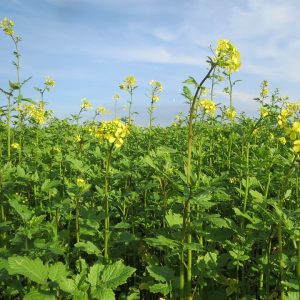
NPR recently did an interview featuring Kate Scow, a member of the CSFS Diversified Agroecosystem Research Cluster. The article shows the relationship between cover crops and soil health and explains how farmers in California are using that relationship as means of controlling carbon emissions in the state.
“Soil is alive. There’s farmers that know that. The deeper you can get [carbon] in the soil, like, especially below the plow layer, the more stable and secure it’s going to be.” – Kate Scow, Cluster Member, UC Davis.
Read More | No Comments
By Salloum on May 1, 2019
FAO Newsletter Feature: Structuring Markets for Resilient Farming Systems
This article shows how the convergence of public policies supporting mediated markets, increased farm household autonomy, and farm diversification represent an integrated mechanism with the potential to enhance food system resilience.

Read More | No Comments
By noni nabors on April 26, 2019
Market Recipe Blog: Dark Chocolate Beet Cake
This cake is a favourite of Jess, our 2018 CSA coordinator, who suggests substituting the buttercream icing for a generic cream cheese frosting. It’s a delicious no-fuss way to brighten up your celebrations with dark chocolate decadence. Adapted from The Endless Meal.
Dark Chocolate Beet Cake
Recipe
- 2 medium beets
- 2 tbs water
- ¾ cup butter, softened
- 1 cup granulated sugar
- ¾ cup brown sugar, packed
- 2 large eggs
- 1 ½ tsp vanilla
- 1 ¼ cups cold coffee
- 2 cups all-purpose flour
- ½ cup cocoa powder
- 1 tsp sea salt
- 1 tsp baking soda
- ½ tsp baking powder
- 1 cup dark chocolate chips
- Optional: sprinkles, for decorating
Plus:
- 1 cup softened butter
- 3 cups icing (powdered) sugar
- 1–2 tbs reserved beet juice
- 1 tbs vanilla
- 4–6 tbs cream or milk (non-dairy milk work here too)
Instructions
- Turn the oven to 425. Butter and flour the insides of 2 – 8″ or 9″ cake pans.
- Peel and quarter the beets then put them in a small baking dish with the water and cover the dish tightly. Put the beets in the oven (you don’t need to wait for it to preheat) and let them bake for 25-30 minutes, or until they can be pierced with a fork. Remove the beets from the oven and turn the oven temp down to 350 degrees. Check to see how much liquid is in the pan and if there is less than two tablespoons add a little bit of water. Let the beets cool, covered. Once they are cool enough to handle grate them with the small holes of a grater. Reserve the liquid left in the baking dish.
- While the beets are cooling, prepare the rest of the cake. In a large bowl beat together the butter and sugars. Beat in the eggs and vanilla. Slowly beat in the cold coffee.
- In a second bowl whisk together the flour, cocoa powder, sea salt, baking soda and baking powder. Add this to the liquids in 2 additions, beating well between each. Beat in the grated beets then stir in the chocolate chips.
- Pour the batter evenly between the prepared cake pans and bake in the oven for 20-25 minutes, or until a toothpick inserted into the middle of the cake comes out clean.
- Remove the cakes from the oven and let them cool for 10 minutes in the pans. Carefully invert the cakes onto a cooling rack and let them cool completely, at least 1 hour.
For the icing:
- In a large bowl beat together the butter, powdered sugar and 1 tablespoon of the reserved beet juice. Add the vanilla and 4 tablespoons of cream or milk and beat the icing well. Add the remaining tablespoon of beet juice if you want more colour and the remaining cream or milk if you would like a softer icing. (see notes for more about the icing)
To assemble the cake:
- Place 1 cake on a flat plate or cake stand and cover the top of it with a thick layer of icing, focusing on the edges. Top with the second cake and spread the remaining icing over the top. Add a few pretty sprinkles if you like.
Pick up produce at any of our three weekly markets: Tuesdays 4-6:30PM at the UBC Farm, Wednesdays 11:30AM-1:30PM at the UBC Bookstore, and Saturdays 10AM-2PM at UBC Farm. Learn more about our produce and browse other recipes in our Market Recipe Blog. Recieve regular market recipes from our newsletter here.
Read More | No Comments
By noni nabors on April 26, 2019
Market Recipe Blog: Butternut Squash Gnocchi
With crisp mornings and crunchy leaves on the ground, it is undeniably autumn. Here at the Farm this means squash season! Our ovens are constantly set to bake at 350 and salted squash seeds are always on hand for snacking. Take your gourd game beyond soup and stuffed squash with this Butternut Squash Gnocchi. You can substitute other dry winter squash varieties, like kabocha or blue hubbard, or even blend whatever squash leftovers you have on hand for a delicious flavor medley. Best enjoyed fresh out of the pan, gnocchi also freeze well for the winter. Simply freeze in a single layer on a baking sheet and transfer to a freezer bag once frozen. Boil as per instructions below to cook.
Butternut Squash Gnocchi
Recipe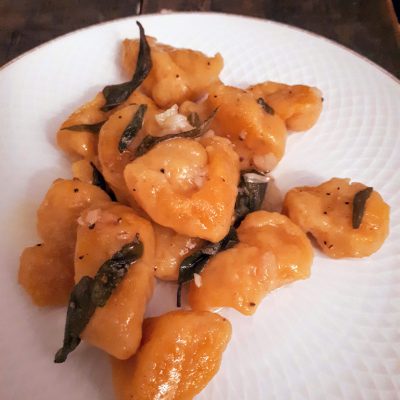
- 2 cups butternut squash (peeled and chopped into chunks)
- 2 cups flour
- 1 egg, lightly whisked
- 1 cup parmesan, finely grated
- 1 tsp salt
- ½ tsp nutmeg
- ½ cup butter
- 3 cloves garlic, minced
- 1 tbs fresh sage, chopped fine
Instructions
- Place chopped butternut squash on a baking sheet and roast at 350 F until soft (20-25 minutes). Puree in a food processor and strain to remove water.
- Mix flour, egg, 1/2 cup parmesan, salt and nutmeg together and add to squash. Knead dough, being careful not to overwork.
- Grab handfuls of dough and roll into tubes, approximately ½ inch diameter. Cut tubes into 1 inch pieces, and slightly flatten each piece with a fork.
- Bring a pot of water to a rapid boil, and boil dough segments until they float to the top (5-7 mins), then drain.
- While gnocchi is boiling, melt butter in a small pot over low heat. Add garlic and sage and cook slowly until butter is browned. Toss cooked gnocchi in brown butter and serve with a garnish of parmesan.
Pick up produce at any of our three weekly markets: Tuesdays 4-6:30PM at the UBC Farm, Wednesdays 11:30AM-1:30PM at the UBC Bookstore, and Saturdays 10AM-2PM at UBC Farm. Learn more about our produce and browse other recipes in our Market Recipe Blog. Recieve regular market recipes from our newsletter here.
Read More | No Comments
By noni nabors on April 26, 2019
Market Recipe Blog: Extra-Crispy Herb-Roasted New Potatoes
New potatoes are an early summer treat not to be missed. They’re sold without being cured, making the skins soft and the flesh sweeter than their fall counterparts. They’re a wonderful mainstay in any potato salad, and crisp up deliciously when roasted. Get them before they’re gone in late July/early August!
Extra-Crispy Herb-Roasted New Potatoes
Recipe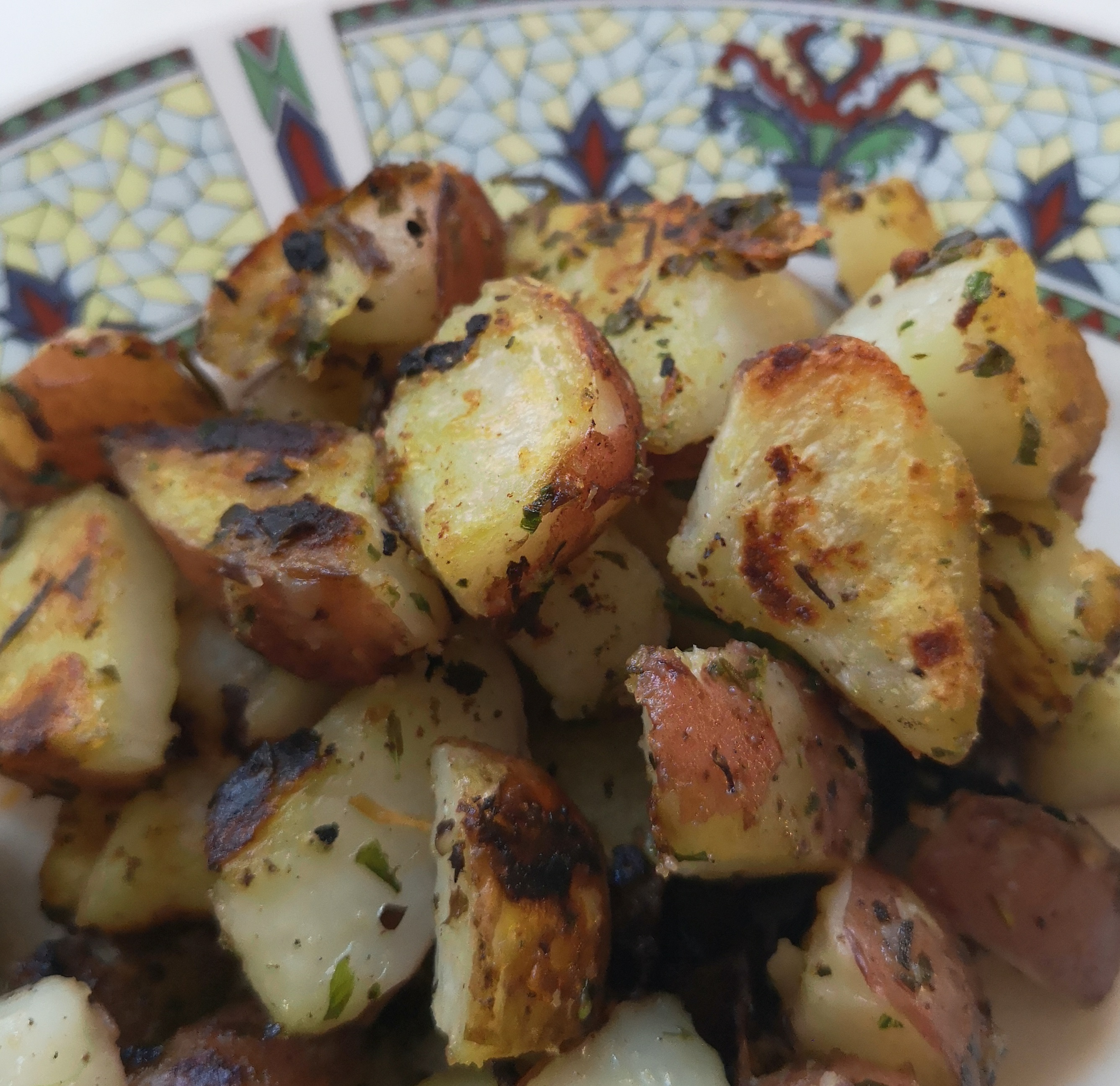
- 4 lb new potatoes, scrubbed, rinsed and cubed uniformly
- 1/2 cup kosher salt
- 2 medium cloves garlic
- 2 tbs roughly chopped chives
- 2 tbs fresh parsley leaves
- 2 tbs fresh sage leaves
- 1 tbs fresh thyme leaves
- 1 small shallot, thinly sliced
- 1/2 stick unsalted butter, cut into 1/4-inch slices
- Freshly ground black pepper
Instructions
- Place potatoes in a large saucepan and cover with water. Add salt and stir to dissolve. Bring to a boil over high heat. Reduce to a low boil and cook, stirring occasionally, until liquid has completely evaporated and potatoes are covered in a film of salt, about 45 minutes. Drain and rinse potatoes of excess salt.
.
- Combine garlic, chives, parsley, sage, thyme, and shallot in a food processor. Pulse until finely chopped and no large pieces remain. Scatter butter chunks on top. Pulse until homogenous paste is formed. Season generously with salt and pepper and pulse to combine. Note: Potatoes and herb butter can be made ahead to this stage for up to 5 days before continuing.
- Adjust oven rack to middle position and preheat oven to 400°F. Line a rimmed baking sheet or broiler pan with aluminum foil. (If potatoes do not all fit on one rack, use two baking sheets, rotating top to bottom half way through cooking.) Heat herb butter in a small saucepan over medium heat until melted. Toss potatoes and half of melted herb butter in a large bowl to coat. Transfer to baking sheet and roast, shaking pan occasionally, until crisp all over, about 20 minutes. Re-melt remaining herb butter. Transfer potatoes to a large bowl and toss with remaining herb butter. Season to taste with pepper. Serve.
Pick up produce at any of our three weekly markets: Tuesdays 4-6:30PM at the UBC Farm, Wednesdays 11:30AM-1:30PM at the UBC Bookstore, and Saturdays 10AM-2PM at UBC Farm. Learn more about our produce and browse other recipes in our Market Recipe Blog. Recieve regular market recipes from our newsletter here.
Read More | No Comments
By noni nabors on April 25, 2019
Market Recipe Blog: Honey Ginger Carrots
Honey Ginger Carrots
Recipe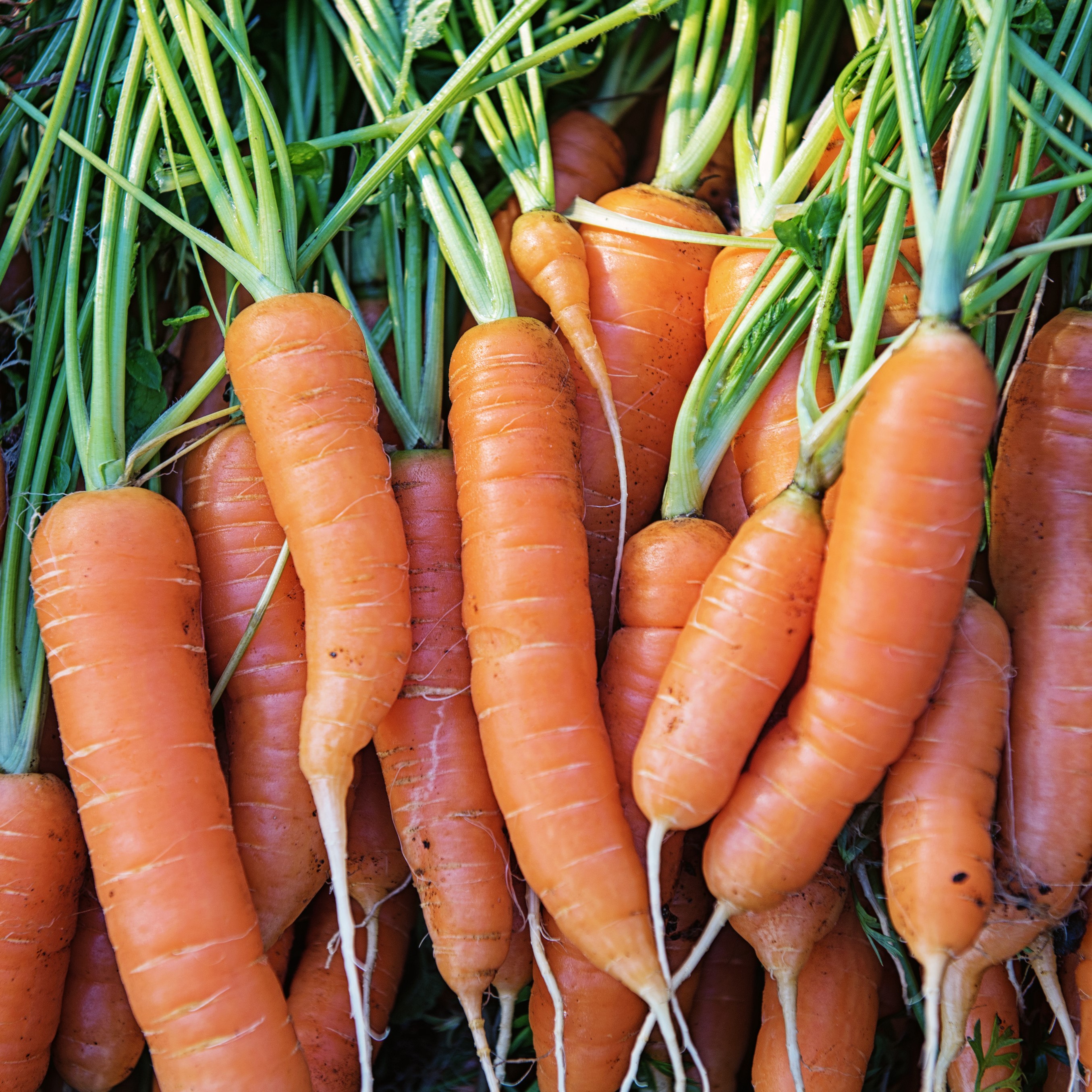
- 2 lb. carrots
- 1/4 cup honey
- 1 tbs. fresh grated ginger
- 1 tbs. fresh lemon or orange juice
- 1 tbs. melted butter
Instructions
- Heat oven to 425 Fahrenheit. Line a baking sheet with parchment paper.
- Slice carrots into uniform wedges.
- Stir honey, ginger, lemon/orange juice and melted butter in a small bowl.
- Put carrots on baking sheet and toss with honey mixture.
- Roast for 20 minutes, tossing once, until tender and glazed. Serve as a side dish.
Pick up produce at any of our three weekly markets: Tuesdays 4-6:30PM at the UBC Farm, Wednesdays 11:30AM-1:30PM at the UBC Bookstore, and Saturdays 10AM-2PM at UBC Farm. Learn more about our produce and browse other recipes in our Market Recipe Blog. Recieve regular market recipes from our newsletter here.
Read More | No Comments
By noni nabors on April 25, 2019
Market Recipe Blog: Grilled & Roasted Walla Walla Onions with Pine Nut Butter
Recipe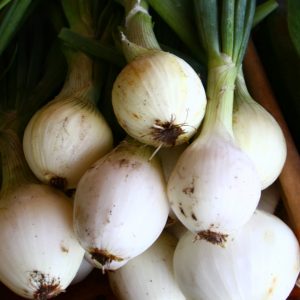
- 4 medium Walla Walla Onions
- 1 tbs. olive oil
- 1/2 cup pine nuts, toasted
- 3 oz. soft unsalted butter
- 1/2 tsp. lemon zest
- 1/2 tsp. fresh rosemary
- Salt and pepper, to taste
- 1/3 cup grated Parmesan cheese
- Optional garnish: 2 tbs. toasted pine nuts, lemon wedges and rosemary sprigs
Instructions
- Toast the pine nuts at 350 Fahrenheit oven for 6-7 minutes, until golden brown. Remove and cool.
- Increase oven temperature to 375 Fahrenheit, and fire up outdoor grill. Peel onions, and slice in half top to bottom. Brush with olive oil, and place cut side down on pre-heated grill. Barbecue until grill marks form.
- Remove from grill and place on a cookie sheet. Finish cooking in over until tender, about 25 minutes. Remove from over.
- Meanwhile, combine pine nuts, butter, lemon zest, rosemary, salt and pepper in food processor. Process until mixture is well blended.
- Spread the butter liberally onto the onions. Return to over to cook until butter is melted, 2 minutes,
- Serve onions warm, sprinkled with Parmesan and garnish.
Pick up produce at any of our three weekly markets: Tuesdays 4-6:30PM at the UBC Farm, Wednesdays 11:30AM-1:30PM at the UBC Bookstore, and Saturdays 10AM-2PM at UBC Farm. Learn more about our produce and browse other recipes in our Market Recipe Blog. Receive regular market recipes from our newsletter here.
Read More | No Comments











